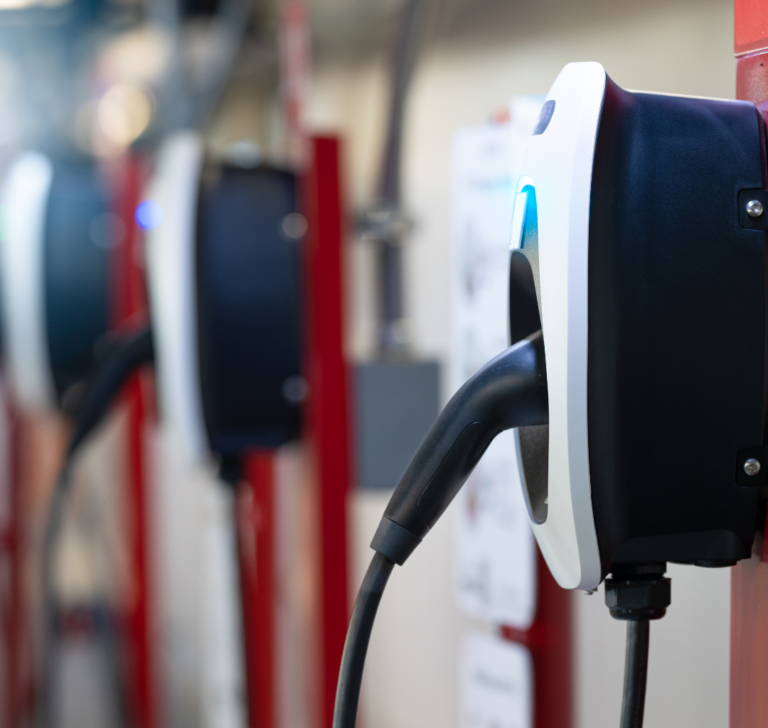The study estimates charging infrastructure costs for fleets at an average of $145,000 per heavy-duty vehicle
According to a study commissioned by the Clean Freight Coalition (CFC), electrifying the entire fleet of commercial trucks in the United States could cost nearly a trillion dollars. The study breaks down the initial costs for the commercial and highway transportation sectors, totaling $620 billion to build a charging infrastructure capable of electrifying all medium and heavy-duty vehicles.
Heavy-duty vehicles face more challenges than medium-duty ones in their electrification due to economic and operational limitations. The study estimates charging infrastructure costs for fleets at an average of $145,000 per heavy-duty vehicle and $54,000 per medium-duty truck. Additionally, electric companies would need to invest $370 billion in upgrades and new constructions of the electrical grid. This doesn’t account for other nearly zero-emission alternative fuels, such as eco-friendly hydrogen and biofuels.
Electricity system operators anticipate significant expansion in generation and capacity to fulfill the requirements of electricity generation and transmission. This projected expansion, propelled by factors independent of the anticipated demand for charging heavy and medium-duty trucks, is projected to surge charging demand by a factor of ten.

Toward zero emissions in freight transport industry
Last week, federal agencies launched the National Strategy for Zero-Emission Freight Corridors, a plan aimed at guiding the development of charging infrastructure and hydrogen supply for medium and heavy-duty vehicles until 2040, with the goal of facilitating the transition to zero-emission vehicles nationwide.
Furthermore, major U.S. truck manufacturers have committed to selling zero-emission vehicles by 2040 and becoming carbon-neutral by 2050. However, Wilfried Aulbur, a senior partner at Roland Berger, noted that this is more feasible for medium-duty vehicles in the next 10 to 15 years, as Class 8 vehicles pose a greater challenge to decarbonize the supply chain. He emphasized the need for fleets to recoup their investment.
Chris Spear, CEO of the American Trucking Associations, pointed out that an electric Class 8 truck can cost three times as much as a diesel one. Hence, a phased approach to electrification for cargo vehicles is necessary, starting with lighter segments and progressing to heavier ones.
Flexibility in decarbonization options is crucial due to significant required investments. Additionally, fleets must explore alternative management strategies to maximize long-term value. Lack of government support could raise freight rates, impacting consumers. Achieving this requires technological and regulatory solutions to facilitate charging and industry collaboration to align interests.

The story of the first car race in Paris: a historic hit in 1894
Paris stands not only as a cultural and artistic epicenter but also as a pioneer in car racing In the history of automotive racing, Paris

Top states for driving in the United States in 2024
A WalletHub study compared all 50 states to determine the best driving conditions Road safety and quality are central concerns for drivers. And while the

Briefs: marijuana reclassification, vehicle fees, and climate grants
The trucking industry goes through new legislation, taxes and subsidies Questions about the proposed reclassification of marijuana The Owner-Operator Independent Drivers Association (OOIDA) supports the

Impact of traffic pollution: study reveals increase in blood pressure
A study from the University of Washington in Seattle reveals that the main cause of significant increases in blood pressure might be traffic-related gasses A

The benefits and careers of a Commercial Driver’s License
Having a CDL opens multiple doors within the trucking and transportation industry Having a Commercial Driver’s License (CDL) opens multiple doors within the trucking industry,

Sharing the road with a truck: steps to ensure your safety
Caution around blind spots and anticipating truck maneuvers are essential to ensuring everyone’s safety Truck drivers face significant challenges on the road due to their
